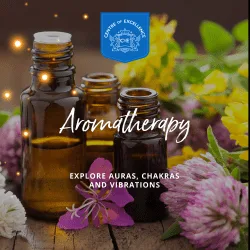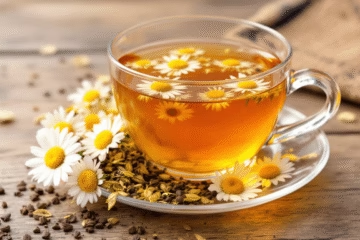Aromatherapy, a practice rooted in ancient traditions, is a holistic healing treatment that utilizes natural plant extracts to promote health and well-being. This practice dates back thousands of years, with documented uses in Egyptian, Greek, and Roman cultures, where essential oils were incorporated into baths, massages, and aromatic practices for their believed healing properties. The term “aromatherapy” was coined in the 20th century by French chemist René-Maurice Gattefossé, who extensively researched the therapeutic benefits of Aromatherapy and essential oils.
Exploring The Benefits Of Aromatherapy
At its core, aromatherapy involves using essential oils derived from various parts of plants, including flowers, leaves, bark, and roots. These oils are extracted through methods such as steam distillation or cold pressing and are then used in various applications to improve physical and emotional health. Essential oils can be inhaled, diluted, and applied to the skin, or occasionally ingested under the guidance of a qualified professional, depending on the desired outcome.
Over the centuries, aromatherapy has undergone significant evolution, expanding beyond traditional practices. Today, it is an integral part of modern wellness routines, blending ancient wisdom with current scientific understandings. Contemporary approaches to aromatherapy incorporate both standalone treatments and complementary methods within broader healthcare practices. Therapists and practitioners utilize essential oils to address a range of ailments, including stress and anxiety, chronic pain, and skin conditions, underscoring the versatile nature of this therapeutic practice.
Incorporating aromatherapy into daily life has become increasingly popular, with products such as diffusers, essential oil blends, and aromatherapy candles making their way into homes. This integration into modern wellness practices reflects an enduring belief in the benefits of aromatherapy to enhance overall well-being. Whether through professional treatments or personal use, aromatherapy continues to offer an aromatic pathway to health and tranquility. With its rich history and evolving applications, aromatherapy remains a testament to the lasting power of nature’s essence in promoting holistic health.
Aromatherapy Diploma Course
The Centre of Excellence‘s Aromatherapy Diploma Course offers a comprehensive guide to understanding essential oils and their healing properties. It is designed for beginners and those looking to deepen their knowledge of aromatherapy practices.
Types of Essential Oils
In the realm of aromatherapy, the diversity of essential oils offers a plethora of benefits, each possessing unique properties that cater to various therapeutic needs. Essential oils are derived from different parts of plants, such as flowers, leaves, roots, and bark, through processes like steam distillation and cold pressing. The quality and purity of these oils are paramount, as they directly influence the efficacy of aromatherapy treatments.
Lavender essential oil stands out for its calming and soothing properties. Widely celebrated for promoting relaxation and emotional balance, it is commonly used to reduce stress, alleviate headaches, and improve sleep quality. The oil’s mild antiseptic properties also make it beneficial for skin care, aiding in the treatment of minor burns and insect bites.
Eucalyptus essential oil is renowned for its invigorating and clarifying effects. It is frequently used in respiratory therapies, offering relief from coughs, colds, and sinus congestion. This oil’s antimicrobial and anti-inflammatory properties further enhance its utility in treating wounds and infections.
Peppermint essential oil is another cornerstone in aromatherapy due to its refreshing and energizing effects. Known for its ability to alleviate headaches and migraines, peppermint oil also aids in digestive health by relieving symptoms like bloating and indigestion. Its cooling sensation can help reduce muscle pain and tension.
Tea tree oil is highly valued for its powerful antiseptic and antiviral properties. It is often incorporated into skincare routines for its effectiveness in treating acne and fungal infections. The oil also supports immune system health, making it a versatile tool in preventive and therapeutic health care practices.
The extraction methods and quality of essential oils are critical considerations in aromatherapy. High-quality oils ensure maximum therapeutic benefits and minimize the risk of adverse reactions. Opting for pure, unadulterated oils guarantees that users fully reap the rewards offered by these potent natural remedies. Ultimately, understanding the diverse types of essential oils and their specific uses can significantly enhance one’s experience and outcomes in aromatherapy.
Methods of Application
Aromatherapy involves the use of essential oils to harness the benefits of aromatherapy through various methods of application. Understanding these methods is crucial for maximizing their effectiveness and ensuring safety. The primary methods include inhalation, topical application, and oral consumption, each serving unique purposes and offering specific benefits.
Inhalation is one of the most common methods. Essential oils can be inhaled directly from the bottle, through steam, or with the use of diffusers. Diffusers disperse essential oil particles into the air, allowing for prolonged inhalation and creating a calming atmosphere. Steam inhalation involves adding a few drops of essential oil to hot water and breathing in the steam. This method is particularly effective for respiratory issues and stress relief. Peppermint and eucalyptus oils are popular choices for enhancing respiratory health, while lavender and chamomile oils are preferred for their relaxation benefits.
The topical application involves applying essential oils directly to the skin, commonly diluted with a carrier oil such as coconut, jojoba, or almond oil to prevent irritation. Methods include massages, where the personalized blend of oils can cater to specific needs like pain relief and relaxation, and bath products that turn daily routines into therapeutic sessions. For instance, mixing lavender oil in a warm bath can promote relaxation and improve sleep quality, while eucalyptus oil can be used in a massage blend for its muscle-relaxing properties.
Oral consumption of essential oils should only be done under the guidance of a qualified professional due to potential risks. While some essential oils have therapeutic benefits when ingested, such as peppermint oil for digestive issues or lemon oil for detoxification, it is crucial to follow expert advice to avoid adverse effects. Proper dosages and types must be strictly adhered to, ensuring safety and efficacy.
Selecting the appropriate method of application depends on the desired outcome. Inhalation methods are best suited for immediate emotional effects and respiratory support, topical applications are effective for localized treatment and skin health, and oral consumption can offer internal benefits, albeit with careful professional oversight. By understanding and leveraging these methods, one can fully appreciate and benefit from the art of aromatherapy.
Mental and Emotional Benefits of Aromatherapy
Aromatherapy offers a variety of mental and emotional benefits, leveraging the therapeutic properties of essential oils to foster greater psychological well-being. One of the significant advantages of aromatherapy is its capacity to alleviate stress. Essential oils such as lavender and bergamot have been shown to induce a calming effect on the central nervous system, thereby reducing stress levels. For instance, a 2013 study published in “Evidence-Based Complementary and Alternative Medicine” found that inhalation of lavender essential oil significantly decreased stress in participants.
Anxiety is another prevalent issue that aromatherapy can effectively mitigate. Essential oils like chamomile and ylang-ylang are renowned for their anxiety-reducing properties. A study in the “Journal of Alternative and Complementary Medicine” demonstrated that chamomile oil significantly reduced generalized anxiety disorder (GAD) symptoms, providing a natural aid for anxiety management. These oils can be used in diffusers, baths, or even applied topically when suitably diluted, offering versatile approaches to emotional relief.
The benefits of aromatherapy extend to alleviating symptoms of depression as well. Essential oils such as rose and frankincense have shown promise in improving mood and emotional stability. According to research published in the “Journal of Alternative and Complementary Medicine,” the use of rose oil led to a noticeable increase in positive emotions and a decrease in depressive symptoms among study participants. Blending these oils with carrier oils for massages or adding them to bathwater can create soothing rituals that support mental health.
It is essential to recognize that the benefits of aromatherapy go beyond transient relaxation, contributing to long-term emotional resilience. Incorporating these essential oils into daily routines helps cultivate a stable and harmonious emotional state, enhancing overall quality of life.
Physical Health Benefits of Aromatherapy
Aromatherapy, a holistic healing treatment that uses natural plant extracts, has been recognized for its capacity to support physical health. Key benefits of aromatherapy include pain relief, improved digestion, enhanced immune function, and better respiratory health. The diverse therapeutic properties of specific essential oils primarily facilitate these advantages.
For pain relief, essential oils such as peppermint and eucalyptus are frequently utilized. Peppermint oil contains menthol, which is known for its analgesic and anti-inflammatory properties, making it effective in alleviating headaches and muscle pain. Eucalyptus oil, on the other hand, is often used in massages to relieve joint pain and arthritis due to its soothing properties. Home remedies, such as adding a few drops of essential oil to a warm bath or using a diffuser, can help manage pain without the need for pharmaceutical interventions.
Improved digestion is another noteworthy benefit of aromatherapy. Essential oils like ginger and fennel have been traditionally used to aid in digestive health. Ginger oil is well-regarded for its ability to alleviate nausea and promote digestive comfort, while fennel oil can help reduce bloating and gas. Incorporating these oils into daily routines, either through inhalation or gentle abdominal massage, can support a healthier digestive system.
Moreover, aromatherapy can boost immune function. Essential oils such as tea tree and lemon possess powerful antimicrobial properties, which help strengthen the body’s defense mechanisms. Tea tree oil, for instance, can be applied topically to treat minor cuts and abrasions, while lemon oil can be used in diffusers to cleanse the air and ward off pathogens.
Respiratory health also benefits significantly from aromatherapy. Essential oils like lavender and rosemary are known to support respiratory function by easing congestion and promoting easier breathing. A simple home remedy includes using steam inhalation with a few drops of these oils to alleviate symptoms of colds and respiratory infections.
By integrating these essential oils into everyday practices, individuals can harness the holistic power of aromatherapy to enhance their physical well-being naturally and effectively.
Safety Considerations
Aromatherapy offers numerous benefits, yet ensuring its safe use is paramount. Essential oils, the cornerstone of aromatherapy, are potent and can cause adverse reactions if not used correctly. Potential side effects include skin irritation, allergic reactions, and respiratory issues. These risks necessitate a measured approach to their application.
One fundamental safety guideline is the dilution of essential oils before topical application. Essential oils are highly concentrated and can cause skin burns or irritation if applied directly. Diluting them with a carrier oil, such as coconut or almond oil, reduces this risk. The typical dilution ratio is a few drops of essential oil per ounce of carrier oil, although this may vary based on the specific oil and intended use.
Understanding individual sensitivities is also critical. Conducting a patch test can help identify any adverse reactions before extensive use. Apply a small amount of diluted essential oil to a small skin area and wait 24 hours to ensure no adverse reaction occurs.
Consulting with a healthcare professional before beginning aromatherapy is highly recommended, especially for pregnant women, children, and individuals with existing health conditions. Certain essential oils are contraindicated during pregnancy or for those with specific health disorders. For instance, oils such as rosemary and peppermint should be avoided during pregnancy due to their potential to induce contractions.
Adherence to recommended dosages is equally important for internal use, although this practice should be approached with caution and under professional guidance. Incorrect dosages can lead to toxicity or exacerbate existing health issues.
In summary, while the benefits of aromatherapy are substantial, prioritizing safety ensures a positive and healthful experience. Dilution, awareness of possible allergic reactions, and professional consultation are essential to mitigating risks and enjoying aromatherapy’s numerous advantages.
Aromatherapy in Different Cultures
Aromatherapy, an ancient practice harnessing the therapeutic properties of essential oils, finds its roots embedded in diverse cultural traditions across the globe. Each culture’s unique approach to aromatherapy not only reflects its rich heritage but also contributes to the modern understanding and application of this holistic healing method.
In India, Ayurveda, a traditional system of medicine over 5,000 years old, extensively employs aromatherapy. Essential oils, derived from plants like sandalwood, jasmine, and neem, play a crucial role in balancing the body’s doshas – vata, pitta, and kapha. These oils are integrated into various treatments such as massages, baths, and inhalation therapies, aiming to promote physical and mental well-being. Furthermore, Ayurvedic practices emphasize the spiritual benefits of aromatherapy, using it to enhance meditation and yoga practices.
Traditional Chinese Medicine (TCM) also showcases the benefits of aromatherapy through its holistic approach. In TCM, essential oils like eucalyptus, ginger, and lavender are used to regulate Qi, the life force energy, and restore harmony within the body. These oils are applied in various ways, including acupuncture, where they might be used to activate acupoints or in conjunction with techniques like cupping. TCM’s focus on the interconnectedness of the body and mind through aromatherapy highlights a profound understanding of its healing potential.
In Native American cultures, the use of aromatic plants is woven deeply into healing rituals and spiritual practices. Sage, cedar, and sweetgrass, among others, are burned or smudged to purify spaces, heal individuals, and connect with the spiritual realm. The ceremonial use of these plants underscores the cultural significance and reverence for nature’s healing gifts, adding a deeply spiritual dimension to the benefits of aromatherapy.
Contemporary Western practices have greatly benefited from these traditional methods, integrating them into a more scientifically grounded framework. Modern aromatherapy now combines indigenous wisdom with clinical research, offering a more comprehensive understanding of the therapeutic potential of essential oils. This blending of ancient tradition with modern science enriches the practice, making the benefits of aromatherapy more accessible and effective in promoting global health and well-being.
Aromatherapy Diploma Course
The Centre of Excellence‘s Aromatherapy Diploma Course offers a comprehensive guide to understanding essential oils and their healing properties. It is designed for beginners and those looking to deepen their knowledge of aromatherapy practices.
Getting Started with Aromatherapy
For those new to the world of aromatherapy, incorporating essential oils into your daily routine can seem a bit daunting. However, with some practical advice and a step-by-step guide, you can easily begin to enjoy the numerous benefits of aromatherapy. Starting with a basic understanding of essential oils is crucial. These concentrated plant extracts, known for their therapeutic properties, can be used in various ways to enhance physical and mental wellness.
One effective way to commence your aromatherapy journey is by investing in a starter kit. Many kits come with a selection of popular essential oils such as lavender, eucalyptus, peppermint, and tea tree oil. These oils are versatile and can be used for relaxation, boosting energy, improving focus, and even relieving minor ailments.
A simple way to start incorporating essential oils into your routine is through diffusion. Using a diffuser, add a few drops of your preferred essential oil to water and let the fragrant mist fill your room. This method is excellent for creating a calming atmosphere or energizing the environment, depending on the oil used. Alternatively, you can use a few drops in a warm bath, an easy and luxurious way to unwind and take in the beneficial properties of the oils.
Creating your DIY aromatherapy projects can also be fun and rewarding. Simple recipes like homemade room sprays, body oils, or roll-on blends can be crafted with just a few ingredients. For example, a relaxing body oil can be made by mixing a few drops of lavender oil with a carrier oil such as jojoba or coconut oil. Similarly, a revitalizing room spray can be concocted with water, witch hazel, and essential oils like peppermint or citrus.
As you embark on your aromatherapy journey, it is essential to experiment with different oils and methods to discover what works best for your specific needs. Continuous learning and education will not only enhance your knowledge but also ensure you make the most of the benefits of aromatherapy. Resources such as reputable websites, books, and workshops can provide in-depth information and guided practices, helping you to navigate and fully embrace the aromatic world of essential oils.
Aromatherapy Diploma Course
Who Would Benefit from This Course?
The Aromatherapy Course requires no prerequisite knowledge of the subject, as it is covered fully. Beginners will find the course to be quite accessible, and those currently working in the health & wellbeing industry will find the course to be incredibly insightful and will be able to use the knowledge contained within to add to their skill set and offer as an additional service to their clients.
Upon successful completion of the course, you will be able to join a professional body and obtain insurance to practice.
Of course, you can also study the materials to use for the health and well-being of yourself, your family, and friends.
Body, Mind, And Soul For A Fulfilled Life!





